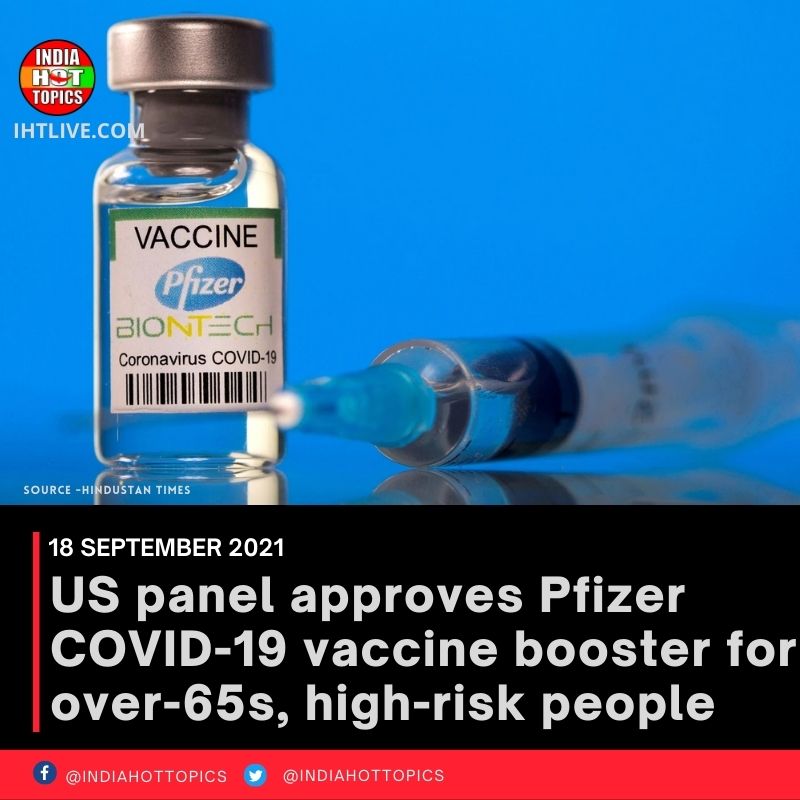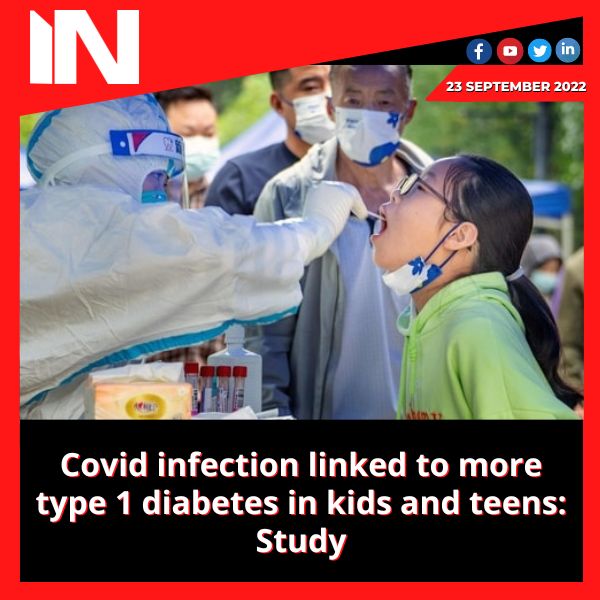Covid -19
US panel approves Pfizer COVID-19 vaccine booster for over-65s, high-risk people

After hours of discussion and a request to revise the question they were being asked, a key federal advisory committee on Friday recommended a third dose of the Pfizer-BioNTech COVID-19 vaccine six months after full vaccination for people aged 65 and older and those at high risk of severe COVID-19.
The initial question, posed by Pfizer, would have made the booster available to everyone aged 16 and up.
There isn’t yet sufficient evidence to show boosters for people under 65 are necessary, said members of the Food and Drug Administration’s Vaccines and Related Biological Products Advisory Committee.
Those at high risk would include health care workers, first responders and people likely to be exposed to the virus at work, committee members said.
Members said getting it right, and waiting to follow the science, were important factors.
News Source: Hindustan Times
Covid -19
Covid infection linked to more type 1 diabetes in kids and teens: Study

Two studies that did not definitively resolve the question of whether the coronavirus can cause the chronic disease of diabetes found that Covid-19 in children and adolescents appeared to increase the chance of acquiring diabetes. Over two years after the pandemic’s commencement, researchers from the Norwegian Institute of Public Health looked at new type 1 diabetes diagnoses using national health registries. They discovered that type 1 diabetes was roughly 60% more likely to develop in children who had tested positive for the coronavirus.
The risk within 30 days of a Covid infection confirmed by a PCR test was examined by the researchers. Young adults were also included in a Scottish study that was presented at the European Link for the Study of Diabetes meeting. This study indicated an increased risk one month following the viral sickness, but the researchers said they discovered no association after that point.
The authors of both studies emphasised that their findings do not necessarily imply a causal link between diabetes and the coronavirus. Other potential causes were emphasised, such as delays in seeking medical attention during the epidemic, the introduction of other diseases, and alterations in way of life brought on by lockdowns.
Jamie Hartmann-Boyce, an associate professor at the Nuffield department of primary care health sciences at the University of Oxford, stated: “There are a lot of plausible reasons that Covid-19 might lead to development of type 1 diabetes, but this remains in no way proved.”
According to a paper earlier this week in the medical journal The Lancet, the number of people with type 1 diabetes, in which the pancreas fails to generate the hormone insulin, may increase from 8.4 million to 17.4 million by the year 2040.
The illness, which has no known treatment and is most frequently diagnosed in children, is thought to be caused by a combination of genetics and exposure to particular pathogens, including SARS-Cov-2 as well as a larger family of viruses known as enteroviruses. Type 2 diabetes, which is more prevalent, typically appears later in life as sedentary habits and weight increase mess with the body’s ability to manage sugar.
Group Media Publications
Entertainment News Platforms – anyflix.in
Construction Infrastructure and Mining News Platform – https://cimreviews.com/
General News Platform – https://ihtlive.com/
Legal and Laws News Platforms – https://legalmatters.in/
Podcast Platforms – https://anyfm.in/
-

 Bollywood2 months ago
Bollywood2 months agoAishwarya Rai maintains her stunning appearance in a new L’Oreal ad.
-

 health and remedies2 months ago
health and remedies2 months agoThe article discusses the potential health risks associated with swallowing dry ice
-
.jpg)
.jpg) Music1 month ago
Music1 month agoSidhu Moosewala’s father and baby brother feature on Times Square billboard; fans react. Watch
-
Bollywood3 weeks ago
Rasha, the daughter of Raveena Tandon, discusses how trolling affects her: “I think in processing it, feeling bad for a bit.”
-

 Entertainment2 months ago
Entertainment2 months agoThe Anant Ambani-Radhika Merchant pre-wedding bash in Jamnagar has received a list of guests.
-

 Trending2 months ago
Trending2 months agoDolly Chaiwala: “Didn’t Know Who He Was” in reference to giving Bill Gates tea
-

 Bollywood4 weeks ago
Bollywood4 weeks agoThe phrase “female-led projects” annoys Bhumi Pednekar. “It disgusts me deeply.”
-

 Trending2 months ago
Trending2 months agoOppo Reno 12 Pro Key Features Leak Online: Expected to Receive a 1.5K Display with a Density 9200+ SoC









%20(1).jpg)
%20(1).jpg)
%20(1).jpg)
%20(1).jpg)
%20(1).jpg)
.jpg)





